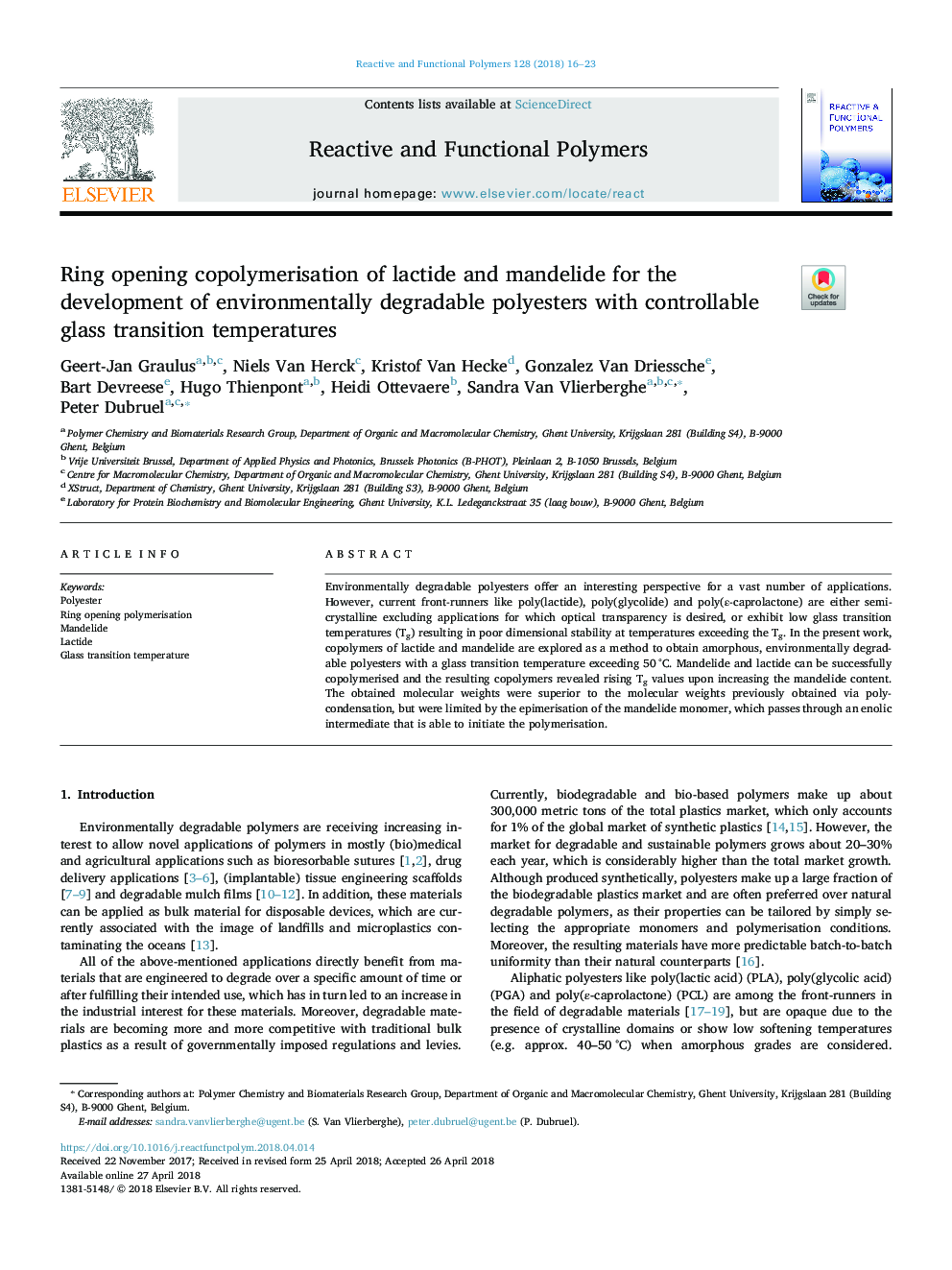| Article ID | Journal | Published Year | Pages | File Type |
|---|---|---|---|---|
| 7826177 | Reactive and Functional Polymers | 2018 | 8 Pages |
Abstract
Environmentally degradable polyesters offer an interesting perspective for a vast number of applications. However, current front-runners like poly(lactide), poly(glycolide) and poly(ε-caprolactone) are either semi-crystalline excluding applications for which optical transparency is desired, or exhibit low glass transition temperatures (Tg) resulting in poor dimensional stability at temperatures exceeding the Tg. In the present work, copolymers of lactide and mandelide are explored as a method to obtain amorphous, environmentally degradable polyesters with a glass transition temperature exceeding 50â¯Â°C. Mandelide and lactide can be successfully copolymerised and the resulting copolymers revealed rising Tg values upon increasing the mandelide content. The obtained molecular weights were superior to the molecular weights previously obtained via polycondensation, but were limited by the epimerisation of the mandelide monomer, which passes through an enolic intermediate that is able to initiate the polymerisation.
Related Topics
Physical Sciences and Engineering
Chemistry
Organic Chemistry
Authors
Geert-Jan Graulus, Niels Van Herck, Kristof Van Hecke, Gonzalez Van Driessche, Bart Devreese, Hugo Thienpont, Heidi Ottevaere, Sandra Van Vlierberghe, Peter Dubruel,
